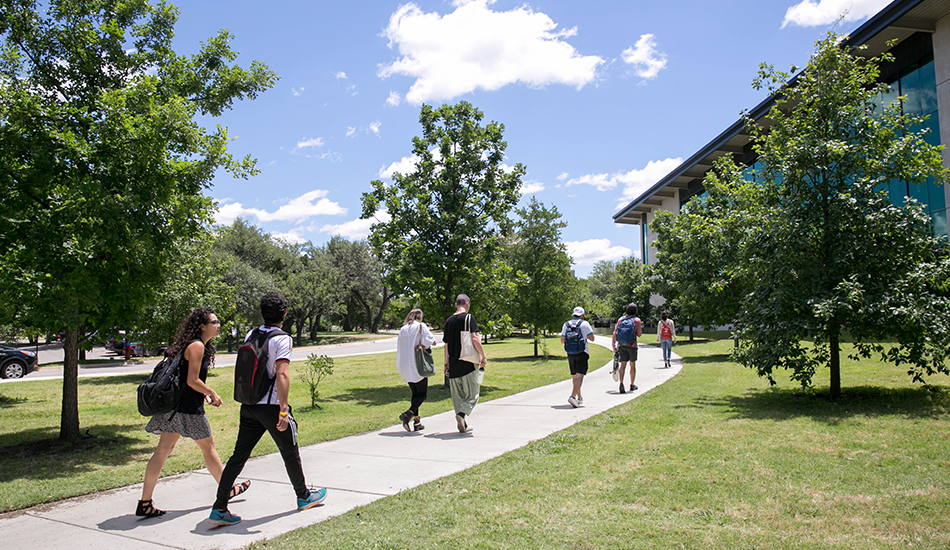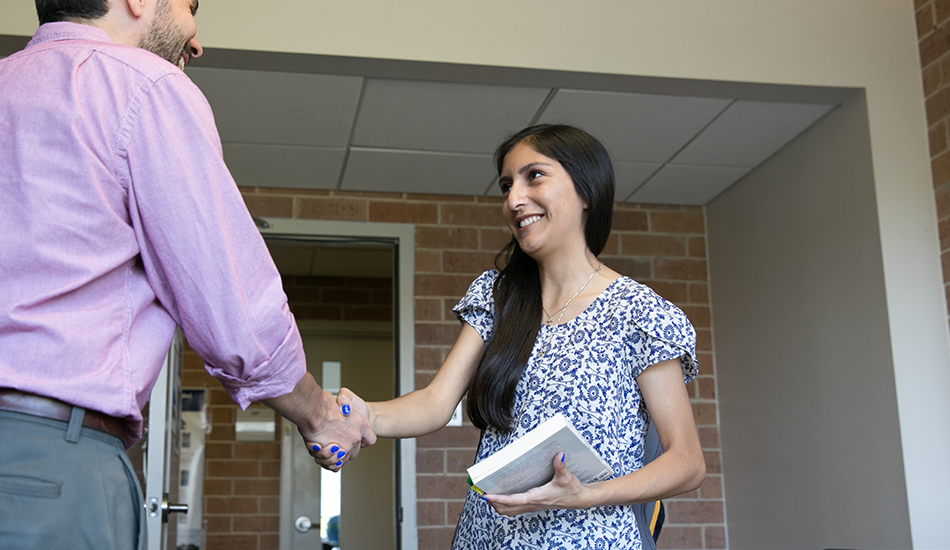The college application process can seem overwhelming at times. But take it from students who’ve been in your shoes — there are hacks for every challenge. Here are six strategies to get focused, get organized and get the hard work done early.

1. A university is more than its name or reputation.
“Choosing a college that caters to what you want (like small classes, club sports, or research opportunities) should take precedence over the ones that might just look good on a resume.”
—Nubia Briones ’18, Psychology major
Make it happen:
To pick a college that’s the right fit, you need a clear idea of what you want. Make a list of your priorities, then use that list to guide your search. For example, if you absolutely want to study abroad, it’s easy to rule out schools where you might not be able to study abroad. When it comes to your resume, the experiences and skills you gain in college will be more important than your school’s name. Look for colleges with strong internship opportunities, study abroad programs, and mentorship programs.
2. Start the application process early, so you have plenty of time.
“The application process is difficult and long. The earlier you get it done, the better, but take your time on it. Make sure you include all the activities that you have done throughout the years.”
—Isabel Prado ’20, Social Work major
“The rule in my house was that we had to have all our college applications done and submitted by Halloween. It gave us time to finish them while giving us some time to relax. Also, that’s early enough for some colleges to waive application fees!”
—Kate Dolan ’20, Secondary English Education major
Make it happen:
Make a spreadsheet that lists each college you’re applying to, along with deadlines and the materials required (like essays, tests, supplements and short answers). Put together a resume with all your out-of-class activities, including clubs, work and family commitments. Even if you can’t submit the resume as part of your application, you can use it to help you fill in the blanks on forms like the Common Application.
3. Create a college-only email address.
“Your email will be bombarded with messages from colleges every day, and it’s easy to miss something. If you have a separate email address, you can create different folders to sort your college mail.”
—Alek Nybro ’21, Digital Media Management major
Make it happen:
This one’s easy. Just make sure the address you choose has a professional tone and that you remember the password. And check it daily so you don’t miss important deadlines or opportunities!
4. Use the Common Application, Coalition Application or ApplyTexas when possible.
“The Common Application saved me so much time. Also, ask your English teachers if they would be willing to read and critique your college essays.”
—Kate Dolan
Make it happen:
Your spreadsheet will come in handy here, too. Find out which applications are accepted by each college on your list. You might only have to fill out one or two applications for all the colleges — just be sure to check which supplements and supporting documents each school needs.

5. Find out whether you need to pick a major when you apply.
“Something that I wish I had known when applying to St. Edward’s is that I didn’t have to declare my major by Day One.”
—Manny Servin ’20, International Business major
Make it happen:
Some universities require students to declare a major on their application. In fact, at very large schools, you might apply to a specific major or program rather than the university as a whole. St. Edward’s and similar universities don’t require you to commit to a major when you apply. You’ll be asked about your major on the application, but your answer isn’t binding. You can find out which schools want you to apply to a particular major by checking their admission websites and reviewing their applications.
6. Pick a school with your major, but think about life outside the classroom, too.
“Make sure there is an organization, team, or club that interests you, so you can get involved and make friends in a field that is exciting to you. I joined the Climbing team my freshman year and found nearly all my close friends through the team. The next year, I joined the Outdoor Adventure Program and eventually got more involved at Recreation/Wellness and found even more of my close friends.”
—Ethan Calamia ’20, Digital Media Management major
“Look for what current students do in their free time. Do they intern, volunteer, attend clubs, work out, spend time outside, go to concerts? You want to be at a place where you have access to your hobbies.”
—Alek Nybro
Make it happen:
Start with a school’s website, where you can probably find a list of all student organizations and activities. Check out their Instagram accounts, and don’t be afraid to reach out to the presidents of organizations that interest you.